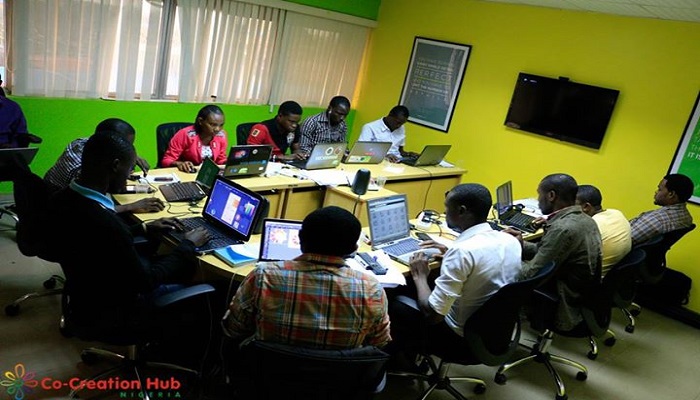While some technology entrepreneurs have stressed that Nigeria does not have a tech ecosystem, this may be unfair to the work done by the Co-Creation Hub in Yaba, which has become the model for innovation ecosystems across Nigeria.
Read the first part of this article here
Over the last eight years, more tech communities have sprung up across different locations in Nigeria, fostered by 30+ accelerators and hubs.
Though leading technology cluster in Nigeria, Yaba Innovation Headquarters (a brainchild of the Co-Creation Hub led Bosun Tijani) has been described as Africa’s most valuable startup ecosystem, it still doesn’t have all the required features of the ideal ecosystem.
The Yaba cluster enjoyed initial policy support during its early days (the project was a partnership between Lagos State, Technovision, the Co-Creation Hub and MainOne) which has since dwindled to a trickle. The sought after academia engagement, expected to source talent is sorely lacking despite the proximity of the Yaba cluster to talent hubs like Yaba College of Technology, Federal College of Education, Akoka and University of Lagos.
Fortunately, what iHQ lacks in government support and academia engagement, it makes up in its vibrant, youthful culture, abundant capital, and industry collaboration. A roll-call of partners at the Cchub reads like a Fortune 500 list: Google, Amazon, Facebook, Oracle, Nokia, Microsoft, Ford Foundation, Tony Elumelu Foundation and MainOne are only a few.
It is home to companies including Paga, Hotels.ng, BudgIT, Paradigm Initiative, Paystack, and the birthplace of Andela, Flutterwave, among several others. Cumulatively, Yaba has attracted millions of dollars investment and created thousands of direct/indirect jobs.
I believe that Lagos and by extension, the University of Lagos holds the key to Nigeria’s development. For Nigeria to be pulled out of poverty, Lagos must take the lead. And it has noticeably set the pace. Lagos is the seventh fastest growing city in the world, the second largest city in Africa and the largest economy on the continent.
Its Public Private Partnership (PPP) stance has been identified as the strategy to power the desired growth in physical and social infrastructure in the state. Politically, Lagos has also done well for itself. Seth Kaplan of Johns Hopkins University opines that whereas national elections in Nigeria are a squabble over petrodollars, local elections in Lagos favour candidates who show competence and pragmatism. The reforms in Lagos have also kick-started wider changes across other states.
As a result of its location, the University of Lagos must also step up its ante and actively engage the private sector and technology leaders. There is no evidence to show that this university of first choice has taken advantage of the technology ecosystem right in its backyard. And this is sad, a stirring reminder of how Nigeria does not take advantage of available opportunities.
Unilag must take advantage of Yaba. A collaboration between Unilag and the tech cluster in Yaba will benefit both parties, but more importantly, will further Nigeria’s technology trajectory. The ability to transfer out technologies developed at academic institutions is another benefit for the tech community.
Academic institutions produce intellectual property (IP) through research which are protected through patents, trademarks, or copyrights. Yaba iHQ can transform these IP into real products, and fine-tune them before showcasing to a global market. Ultimately, the more successful a university is at transferring technologies out of the laboratory into products, the higher its ROI.
Unilag must also revamp its curriculum to include STEM and MOOC courses, and attract sponsored research to address industrial needs. Koreangate may have left a bad taste in the mouth of its administration, but we must not throw the baby out with the bath water. Obafemi Awolowo University and Covenant are already leading in STEM education. A dalliance with Yaba offers Unilag the opportunity to wean itself off government funding.
Today, Universities are in dire need of Chief Executive Officers who have talents for maximizing resources that can be invested in priorities. Yaba iHQ is attracting top companies and significant FDI. Without Unilag’s presence, it may lack an organic succession. The failure of eCommerce players, if documented and codified would have stopped similar failures.
And when all this is done, Unilag will have a stellar reputation as the bastion of technology in Nigeria, with visits from far and wide. Its brand value will significantly improve with local and global recognition, more robust operating and research funding and national and international appointments of its staff.
More than ever, Unilag will be able to recruit top talent, as the go-to Nigerian school for global tech companies. Other Universities in Nigeria will come to see how Unilag has done it. More than any regulation, this pull strategy will create a demand for technology ecosystems and many State Governments will voluntarily declare the need for Smart Cities.
Broadband demand will explode beyond current capacity and InfraCo will finally be implemented. And finally, technology ecosystem development across Nigeria will simply be plug and play, with replication across Nigeria.
Unilag has a vantage position to quickly lead Nigeria’s educational institutions, transforming education with technology. New Vice-Chancellor, Prof. Oluwatoyin Ogundipe has his work cut out for him.
Unilag must partake in the real technology ecosystem and execute its responsibilities. Government and risk capitalists must join hands with the private sector and tech entrepreneurs in Yaba to mutually work towards enabling platforms and raise Nigeria’s profile. It is time for Nigeria. It is time.
Written by Temitope Osunrinde
Osunrinde is an avid technology stakeholder and has contributed to the narrative of West Africa’s most prominent broadband infrastructure player. He works in Lagos and can be contacted via temi.osunrinde@gmail.com
